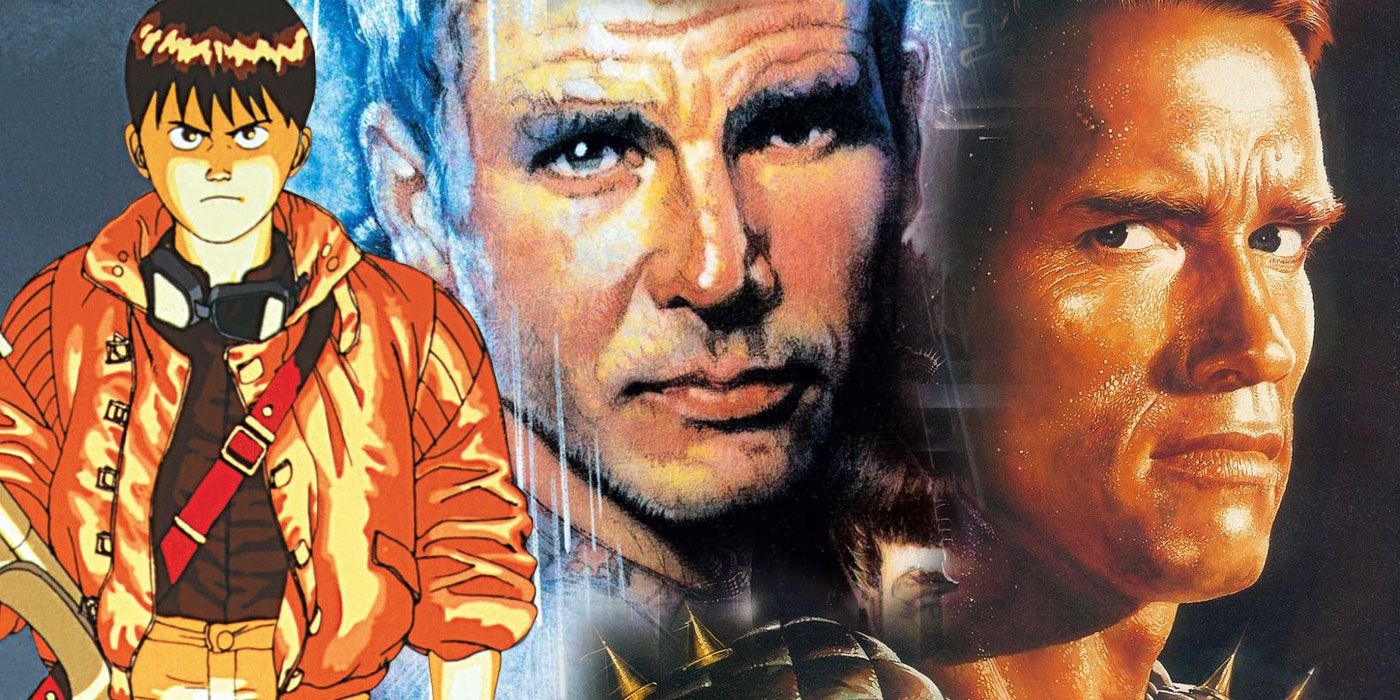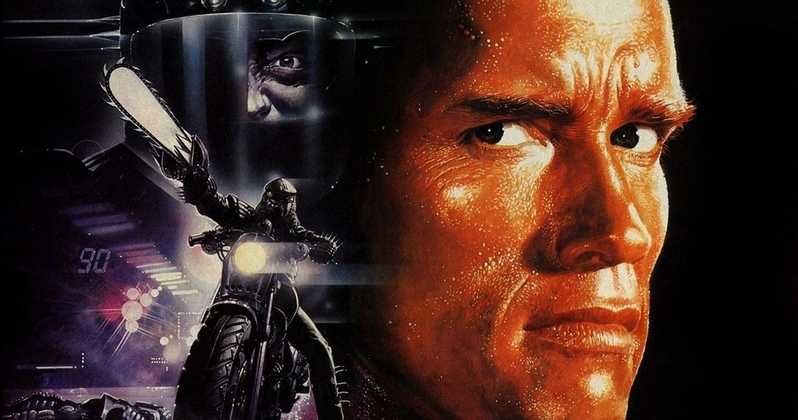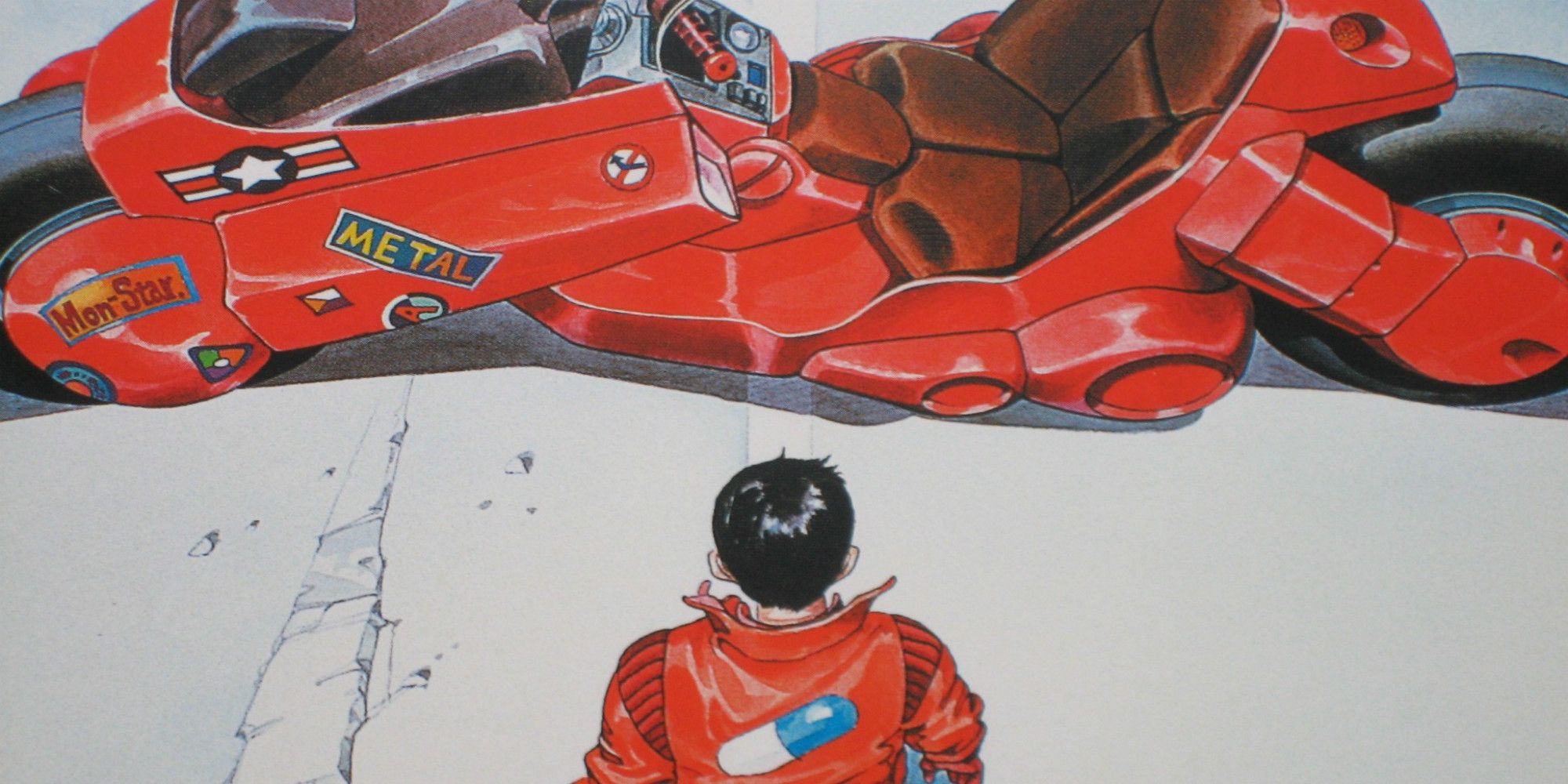In the 1980s, 2019 seemed so far off that several high-profile sci-fi films of the decade set their stories over three decades into the future on this very year. Ridley Scott's cyberpunk neo-noir film Blade Runner, the Arnold Schwarzenegger-starring action sci-fi film The Running Man and Katsuhiro Otomo's groundbreaking anime classic Akira are all set in 2019, and each displays dystopian or post-apocalyptic visions of their relative future.
However, as Back to the Future Part II showed with its predictions of 2015 in 1989, accurately forecasting 30 years into the future is a cinematic impossibility. To each of these films' credit, that was not their primary intent. Instead, the filmmakers presented a future that best suited the sci-fi story they were respectively trying to tell. But as outlandish as the cinematic depictions of this year turned out, there are certain elements where each of the three of them were relatively on point. But before we go what each film were able to get right about 2019, here's a brief refresher on each of these popular, and very different, sci-fi movies.
RELATED: Blade Runner 2049 Anime Prequel Series Heads to Adult Swim
1982's Blade Runner is set in a dark, dystopian version of Los Angeles where commercialism, overpopulation and pollution have taken a visible toll on the world. A loose adaptation of the 1968 Philip K. Dick novel Do Androids Dream of Electric Sheep?, the film follows LAPD cop Rick Deckard after he's tasked with hunting down and terminating synthetic humans known as replicants that have gone rogue on Earth. As Deckard hunts the rain-soaked streets of LA for the replicants, the film explores themes of self-identity and the very nature of humanity.
1987's The Running Man is also set in a dystopian vision of California, with Schwarzenegger in the role of helicopter pilot Ben Richards. Loosely adapting Stephen King's 1982 novel of the same name, Ben is falsely accused of massacring innocent civilians during a food riot and is forced to participate in a popular reality television series that has him fight government-funded gladiators to the death in a booby-trapped arena for the chance of a full pardon.
RELATED: 2019 Is a VERY Important Year in Batman Beyond's Timeline
1988's Akira is an animated adaptation of Otomo's manga of the same name, and is set in the post-apocalyptic metropolis of Neo-Tokyo. After Tetsuo Shima develops powerful telekinetic abilities following a motorcycle accident, his new powers threaten to engulf all of reality with as his best friend and biker gang leader Shōtarō Kaneda finds himself on a collision course with his childhood friend.
NEXT PAGE: Of Akira, Blade Runner and Running Man, One Film Hits Home Hardest
The biggest thing that all three of these films were able to accurately predict about 2019 is pervasive, widespread corruption. Both Blade Runner and The Running Man take place in dystopian versions of the United States that have seen corporate interest heavily dictate public policy. Blade Runner's Tyrell Corporation has a far-reaching influence throughout the film and its world, informing each of the main characters. The Running Man's society is more shaped by the entertainment industry becoming part of the government.
Alternatively, Akira's Neo-Tokyo is driven by a totalitarian military-industrial complex, risen from the ashes of World War III. At the risk of coming off as paranoid, the impact of rampant private interest on public policy can be felt everywhere in the real world from corporate influence on the government to inflated defense spending shaping the infrastructure.
RELATED: Every Superhero Movie Arriving in 2019
Also on the topic of corporate interest is the heightened commercialism that has significantly grown unchecked since the 1980s. The targeted, augmented reality advertising of Blade Runner's Los Angeles is, if anything, more restrained than what has actually come to pass in the real world. Choices made by people every day, from online searches to always-listening personal devices to purchase history, have shaped increasingly customized consumer culture. While the denizens of Blade Runner's Los Angeles are faced with omnipresent billboard ads and the like, virtually every aspect of today's real world culture features advertising, a consequence of a materialistic culture that's increasingly technology-dependent. Just look at all reasonable concerns regarding the potential invasion of privacy sites like Facebook, Google and Amazon are currently facing.
The reality-show driven society of The Running Man, in many ways, presages modern television trends. Reality television was more of a novelty in the '80s, relegated almost entirely to traditional game shows. While The Running Man is certainly a game show of sort, it has more in line with modern programming like Ninja Warrior, Battle Bots and Big Brother than, say Family Feud. (That the film's central antagonist is portrayed by longtime Family Feud host Richard Dawson is no great coincidence.) Fortunately, the reality television of today is not nearly as homicidal as the Schwarzenegger film, though there is a heightened sense of competition, occasionally to unhinged levels.
RELATED: CBR's Winter 2019 TV Guide to Superhero, Sci-Fi & Fantasy Shows
Another 2019 prediction come true is an increased level of civil unrest, seen throughout The Running Man and Akira. Paris is currently in the grips of riots, the head of state of Belgium has just resigned in the face of major protests, and it feels like every other month there are people marching through the streets of American cities, protesting numerous policies of the country's current administration. Whether these demonstrations are founded on legitimate grievances is not for this article to say, but the idea that corruption has not been met quietly heavily informs both films, and has proved relatively accurate for our modern lives.
Overall, Blade Runner feels the most prescient of the three films in this article, with Los Angeles facing the constant consequence of climate change and suffering from severe overpopulation. The urban sprawl has led to the construction of towering apartments, each overcrowded in a world facing a wideningly uneven distribution of wealth. This vision of the City of Angels is one where the consequences of today's society have unmistakably taken their toll in a world where the lines between good and bad, and even defining something as simple as what it means to be human, have become continually proven to be unclear and blurred.
RELATED: Every Disney Movie Arriving in Theaters in 2019
Science fiction is a genre that regularly defines the state of society in heightened, exaggerated ways exceeding the traditional constraints of the contemporary world. In crafting each of these movies over 30 years ago, the filmmakers predicted startlingly prescient things about society today. While we still may be waiting for flying cars and telekinetic powers, the more consequential things about the direction of humanity and the social issues it faces have come to pass in a way. And while it may be cynical to accept we're living in a dystopia, it also isn't far-fetched to feel resigned to the possibility that we're on at least on the edge of one every now and again. Happy New Year.



